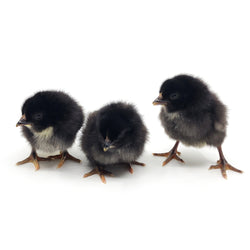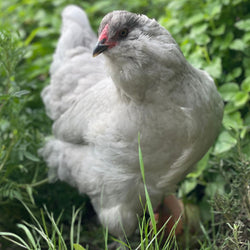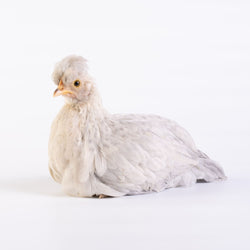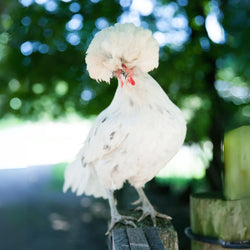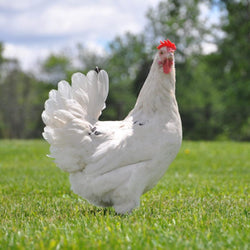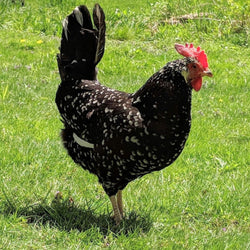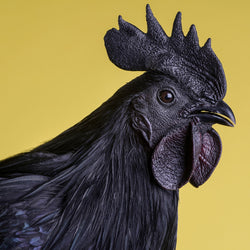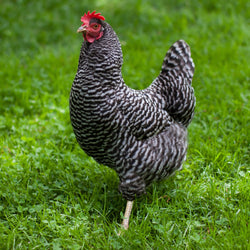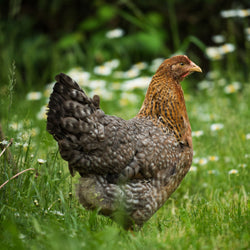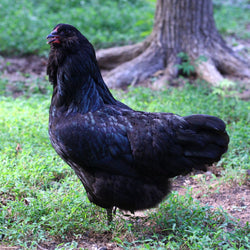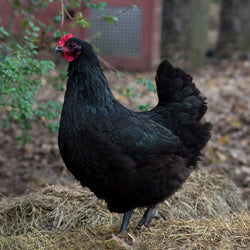page=2/--
Frequently Asked Questions
Here we answer the most commonly-asked questions about ordering, chicken care, and more.
Can ducks and geese be outside during the winter?
Yes! Ducks and geese can be outside during winter! They have a wonderful fluffy undercoating beneath their feathers called "down." Ever had a down jacket? It kept you toasty-warm, right? Ducks and geese get to wear that jacket all the time. Lucky birds, I know!In addition to their down feathers, ducks and geese have a layer of fat beneath the skin that provides even more insulation. Tips for Managing your Ducks and Geese Outside During Winter Shelter: When conditions are the harshest, even the best winter coat may not be enough. If the temperature is going to be below...
Read MoreHow do I introduce new ducks into my flock?
With ducks, the process is usually simpler than when introducing chickens to each other. Normally, you can simply put ducks together and within a few days, they are fully integrated. That being said, make sure you watch them carefully at first. The alpha duck may be aggressive, especially during the spring and summer mating season. If possible, you may want to avoid adding new waterfowl during that time of year. "Welcome to the flock!" If the fighting is excessive, separate the newcomer, but keep the pens beside each other for a few days so they can see each other and...
Read MoreDo ducks and geese have to have swimming water?
While ducks and geese DO need fresh, clean drinking water, and ideally have ready access to a shallow area with "dipping" water (enough for them to dip their heads in to clean their beak, nostrils, and eyes)...they DO NOT require water deep enough for swimming. Ducks and geese love to swim, and they are EXTREMELY cute when they frolic and play in water (don't believe us?...then watch the "Ducklings enjoying bath time!" video in this article), but you are making some headaches for yourself if you provide them with continual access to swimming water. The biggest problem is what to...
Read MoreCan ducks and geese survive on a pond?
Yes--potentially! But before you release a few ducks or geese onto your backyard pond, here are some things to consider: A body of water can only sustain so many bodies! Having too many waterfowl on a pond can damage the pond's ecosystem, creating unhealthy living conditions. In particular, excessive numbers of ducks can speed bank erosion, as they use their bills to dig in the soft areas around the pond in search of food. Likewise, too many geese can defoliate and trample plants growing along the pond's banks. Generally speaking, no more than 8-15...
Read MoreHow do I introduce new geese into my flock?
While geese generally get along well with one another, adding a new goose or gander to your gaggle can be a stressful time for them--and for you!--as they work out the new pecking order. Following the steps we outline here will help the transition go as smoothly as possible. After quarantining the new birds for four weeks, it will be time to integrate them into the flock. Thankfully, Reginald Appleyard (originator of the Appleyard duck breed), an experienced flock-keeper from the past, shared some great advice for handling goose introductions in his book, Geese: Breeding, Rearing, and Management, which was...
Read MoreHow can I keep ducks out of my swimming pool? Can my ducks and geese drink and swim in chlorinated water?
First--no worries about chlorinated water and your waterfowl flock; it will not harm them. So if your personal pet flock finds your pool, you don't have to be concerned about their safety, but you should probably worry about yours! Why? Animal poop can introduce harmful bacteria into a pool, including E. coli, Salmonella, Campylobacter, or Cryptosporidium ("Crypto" for short). The good news is, most types of bacteria die very quickly when they come into contact with chlorine in a properly maintained pool. Crypto may last longer since it has a protective shell, but thankfully, according to the Centers for Disease...
Read MoreWill ducks attack children?
It is extremely rare for a duck to attack a person. As prey animals, their main defense is to run or fly away. There is a much greater chance the child will hurt the duck than the duck will ever hurt the child. There are several videos online of ducks "attacking" people, including children, but in almost all cases, it is clear that these are wild ducks simply coming closer to get food that the humans are offering. This is normal behavior, as a duck must get closer to the food source in order to snag it before his flock-mate...
Read MoreWhat causes the black spots on my duck's bill?
Well...melanin and xanthophyll, of course! In most cases, black spots on a duck's bill and legs are simply melanin skin pigment, which is not harmful in any way. The pigment is usually already present, but covered with xanthophyll--a yellow-colored pigment absorbed from feeds containing corn, alfalfa, and other feed ingredients. Xanthophyll is also found naturally in the leaves of green plants, egg yolks, fat, and skin. In mature breeder ducks, after they have been laying eggs for awhile, more xanthophyll is absorbed by the egg yolk than the duck can consume in her feed. When this happens, her bill and...
Read More







"The Clubhouse" Coop
Easy to assemble and built to last, the Clubhouse Coop is the perfect starter coop for a small flock.
